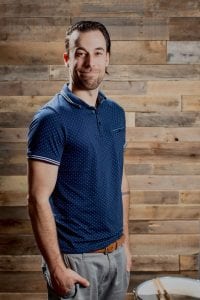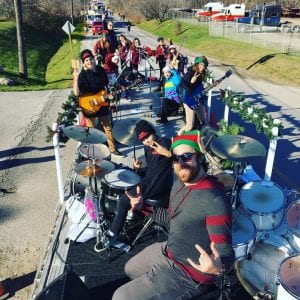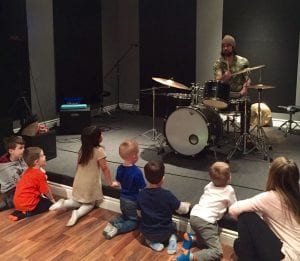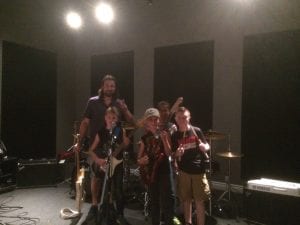Article – Toronto’s Social Capital
The Forest People
 “Animal of the Forest”
“Animal of the Forest”
– Life of a Pygmy people living in the Ituri Forest in the Congo.
– Among the oldest inhabitants of Africa; original inhabitants of the great tropical rainforest.
– They were a people who had found in the forest something that made their life more than just worth living, something that made it, with all its hardships and problems and tragedies, a wonderful thing full of joy and happiness and free of care. (Turnbull, 1962)
Some quotes that I would like to share from this book are:
Murph – Oct 3, 2018
I wanted to highlight some quotes which resonated with me from Wednesday’s class.
“If music can affect the shape of social agency, then control over music in social settings is a source social power, it is an opportunity to structure the parametres of action” (Denora, 2000).
“Don’t corrupt the beauty of learning by becoming attached to the end goal” (Blowing Zen).
“Cosmopolitanism is the ideology that all human beings belong to a single community, based on a shared morality. A person who adheres to the idea of cosmopolitanism in any of its forms is called a cosmopolitan or cosmopolite”(Wikipedia, 2018).
Social Capital is a network of relationships. Networks are patterns of connections.
My perspectives were enhanced following this class. I believe I expanded my web of knowledge with the information presented by everyone. I appreciated this class and also wanted to say thank you again to Rodney.
On a side note, I have been really enjoying Bahamas new album, especially this tune:
I really love the harmonies and also the subtle shuffle played by the drummer. The words seem to be relevant to some of the discussions and themes we shared on Wednesday, minus the Shooby Dooby :P.
Murph
Murph – September 25, 2018
“Ethical Space”
What is it?
When I first heard this phrase, I wondered what it exactly meant. I am fighting a cold and feeling exhausted, and as a result it might have gone over my head a little. As the discussion went on, I did start to derive my own meaning of it. The way I perceive this concept is, if I were to facilitate a drum circle featuring some traditional African rhythms, a way of bridging the ethical space would be to have an authentic drummer from Africa be my guest drummer to help provide context and authenticity to the audience. Or perhaps instead, I acknowledge the context and authenticity of the culture before starting the session. Or maybe I didn’t get the concept of ethical space. Also, maybe I just shouldn’t think about these sort of things so much. It might serve better to just be respectful, acknowledge the culture and be an engaging and dynamic facilitator like I normally would do in my sessions. Sometimes, I think it is best to put aside any insecurities, biases, stereotypes, and judgements and just have fun. Maybe I missed some of the points from the discussion because I’m not feeling 100%, so if anyone could elaborate on this please do.
“In Search of a Better World”
Dylan recited a quote from this book that spoke of freedom and how powerful it is, and it seemed to be the theme in today’s class. The movie we watched at the beginning of class today entailed history of indigenous people being stripped of their freedom and forced into residential schools as children. It was a very heavy and devastating movie to take in. It displayed some of the horrible occurrences that indigenous people endured in the past, and today they are still fighting for equal rights.
The movie made me feel so many emotions and feelings. I felt sad, empathetic, sick, and disgusted. I am always astonished when discovering horrific things humans have done to one another throughout history, and it always seems to be white people who commit these horrible acts. Why is that? A sick sense of entitlement that has come from years of oppressing other races? Does it have something to do with Commonwealth? I don’t know exactly, but it is awful.
I am also exhausted to hearing terrible things the Roman Catholic Church has been a part of. Sometimes, I can’t believe I grew up attending catholic schools and even though I don’t identify as Catholic, I still feel ashamed that I was a part of it in a way. How can a religion based on high morals and values be known to do such horrible things to humans, and all in the name of “God”. I could rant all night about my opinion on religion, but I won’t.
Instead, I will focus on the positive awareness I learned today in class. Ethical space awareness is important because it encompasses equality and respect. Freedom is a very powerful word and also a privilege, as Gerard mentioned. Not everyone in the world has freedom like we do. I sympathize with those who don’t have the same type of freedom. It’s hard to imagine a life where you can’t walk down the street or drive a car somewhere or even choose a different colour preference without facing some sort of nasty punishment. As Dylan demonstrated in his activity, some people live(d) in a society where you must conform, and if you don’t you are punished in terrible and vicious ways. Again, I am again astonished by how horrible humans can be.
As this course progresses, I am realizing that there is so much to learn and be aware of in myself. I learned a lot today and look forward to expanding my mind and awareness further in the coming weeks/months. Thanks everyone.
Murph
Idea
The experience with Rodney made me think, “Why don’t we music together more in this class?”. It is great that we are going to be reading books and learning about topics, but personally, I would love more opportunity to practice music making and building my musicianship, since that is what I plan on doing with this degree. For instance, I would love to learn how to sing more efficiently and confidently. Also, improving my ability to improvise on various instruments. I also love the idea of having guest speakers, like Rodney, who come in to share stories and music which we can participate together in.
Just to give whomever is reading this some more context, next Saturday I am going to be facilitating a drum circle at Culture Days in Milton, representing the music school I work for, and I don’t know any ‘go-to’ songs to sing other than Hallelujah or Kumbaya. Instead, I am going to improvise on the spot to be effective. Maybe if we practiced some material in class to be used when facilitating these situations, it would make me a more confident community musician. Personally, I know I’m not going to become more confident by reading a book. I can only speak for myself here, but I learn better by doing and participating. I hope we can explore this idea further.
Murph
Murph – Introduction

My name is Michael Peter Francis Murphy, the whitest Irish name ever. For most of my life, people have called me “Murph”. I have become accustomed to it and I believe it is part of my identity. I believe it was my Mother’s idea to name me Michael. I was baptized as a baby and attended Catholic schools as a youth and teenager, however, religious beliefs were not enforced in our home. My views on religion are torn. I respect people’s beliefs and cultures, but I like to argue that religion is all made up in efforts to control people and colonize. I think religion can divide people, tear people apart, and even start wars, so it is not something I get behind. I consider myself an atheist, even though I grew up attending Catholic schools learning about being Christian, I definitely don’t identify as one. Instead, I like to identify with nature, since that is one thing I can count on. The sun and water providing me my breath and life overall.
In more regard to my identity, I believe I identify with my immediate family (Mom, Dad, Sister, nephews), musicians (not all), sports fans, open-minded people, learners, people my age, friends, people who share a similar sense of humour, film enthusiasts, and others who have a genuine heart. I value honesty, respect, and kindness. I’m also learning something new about myself everyday, so whom I identify with is always evolving.
At times, I feel bad about being a white, middle-class individual. I struggle at times seeing how I can promote equality and diversity as a community musician with my identity. I have no culture except being a white Canadian, and what does that even mean? Liking hockey and enjoying Tim Hortons? I wonder how I can use my identity to make a positive impact in community music in such a culturally diverse country like Canada. Is it even possible or realistic? I’m so closed off to other parts of the world. This is one concern I have right now. Honestly, in my practice, I put all of that aside and like to use music more as a fun and engaging tool, rather than a complex idea that it promotes equality and diversity. I don’t think I am experienced enough in world music or cultures to be one of those expert community musicians. Regardless, I’m looking forward to expanding my knowledge on these aspects.
Currently, I am a music instructor at House of Chords Music Centre in Milton, Ontario. It is a multi-program facility with over 500 students and 15 instructors. I have been working there for over five years as I am very passionate about music and educating. My role is more of a mentor/coach in music, teaching theory and technique, but from a non-traditional approach.
I grew up in Pickering, Ontario doing much of what I would think a typical white Canadian suburban kid would do in the 90’s. I played hockey, video games, I was a skateboarder, and I loved to be outside with my friends causing ruckus. I went to St. Elizabeth Seaton Elementary School followed by St. Mary’s Catholic Secondary School. After high school, I attended Durham College Applied Arts and Technology and graduated from the Business Administration program in 2009. Following college, I attended the University of Ontario Institute of Technology (UOIT) and graduated from the Educational Studies and Digital Technology program in 2013. It is now 2018, and I am thrilled to be enrolled in the Community Music graduate program at Wilfred Laurier University.
My passion for teaching became evident when I started working as a music instructor over 5 years ago. I always knew that I enjoyed helping people but I think it is even more special when you can educate someone on the thing you are most passionate about. It is within this role where my community music awareness began. I started to get involved with local events that my music school would organize and facilitate, where students were showcased in the community with concerts, fundraisers, festivals, etc. As I reflect back to this time, and as I become a community music student, I realize this is when I began to see the elements of community music practice.
My primary instrument is the drum set, my secondary instrument is the guitar and my third instrument(s) are bass, keyboard, and rhythmic instruments such as tambourine, congas, cajon, djembe, wood blocks, etc. My musical background can be described as informal and non-formal. As a youth, I began taking private lessons on my primary instrument. I started to read books, watch videos and other drummers to gain as much knowledge as I could, as I was extremely enthusiastic about learning the drums. As time progressed, I started to get involved with other musicians. I began playing in bands with my friends, jamming with other musicians, and writing my own material. By the time high school came, music was my life. I joined the concert band and alternately played the drum set, congas, timpani, and crash cymbals in all four years of high school. It was an amazing experience. Following high school and up until now, I’ve played, toured, recorded, and collaborated with many friends and musicians to create music.
This is the cover band I currently play with – The Weight. They are fine gentlemen whom share a passion for music equal to me. I very much enjoy playing music and engaging audiences together. That is me on the drums, not Dave Grohl. 😀 Continue reading Murph – Introduction



